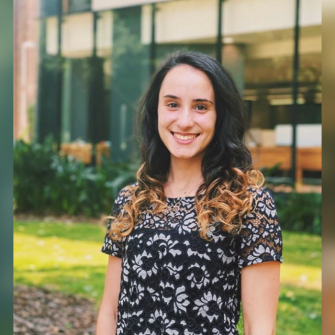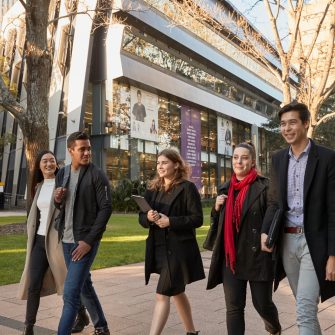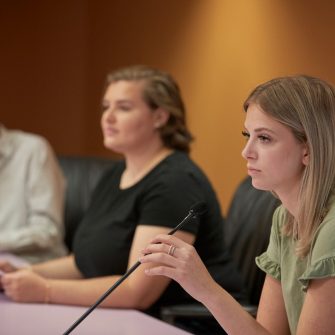Bachelor of Social Sciences / Law
- Commencing Terms
- Term 1
- Duration
- 5 Year(s)
- Delivery Mode
- Face-to-face (includes blended)
- Campus
-
Kensington
- Codes
- UAC code 426000
- Program code 4873
- CRICOS code 110660D
-
ATAR/2025 lowest selection rank
- 97.7 + LAT View all admission criteria
-
2026 Indicative first year full fee
- $17,000*
-
2026 Indicative full fee to complete degree
- $88,000*
-
2026 Indicative first year full fee
- $51,500*
-
2026 Indicative full fee to complete degree
- $288,000*

Application closures for 2026
International applications for all undergraduate programs, as well as postgraduate programs offered by the faculties of Arts, Design & Architecture, Engineering (excluding Master of Information Technology and associated programs) and Science are now closed to New Overseas Student Commencement (NOSC) for 2026 intakes.
Postgraduate programs offered by the Business School and the faculties of Law & Justice and Medicine & Health remain open. Master of Information Technology (and associated programs) also remain open.
- Overview
- Entry requirements
- What will I study?
- Future careers
- How to apply
- Fees & Scholarships
Overview
The Bachelor of Social Sciences/Law is a 5-year double degree program that provides the opportunity to obtain two degrees of professional importance to the public sector, community service, business and law practice. In addition, you’ll have the option to work towards a research career in a variety of disciplines.
Your fundamental knowledge and skills in law and in-depth understanding of social science specialisations will build your capacity to contribute to real world and impactful social, political and cultural change. You’ll focus on contemporary global and local challenges and issues taught by our world-class academics, utilising new and digital technologies to provide an effective, flexible and rich educational experience.
The Bachelor of Social Sciences allows you to choose from various specialisations to build comprehensive knowledge and analytical skills alongside practical experiences throughout this double degree. Take advantage of real-world activities such as projects, work experiences and internships in Australia and overseas.
Key Features
World-class Scholarship
Learn from Australia’s leader in progressive and rigorous legal education at UNSW Law & Justice, ranked #1 in Australia and #12 globally for law and legal studies (QS World University Rankings by Subject, 2025). Study at a Group of Eight (Go8) university with the highest quality teaching among Australia’s research-intensive law schools.
Flexibility and variety
At UNSW, you’ll study undergraduate law as part of a double degree. Be part of a diverse cohort of interdisciplinary thinkers that combine their passion for law and justice with expertise in other disciplines. You’ll get to choose among a wide range of social sciences and international studies to design a degree that suits your goals and values.
Practical experience, here and overseas
Both programs connect you with industry and offer professional development experiences unique to your passions and goals, so you’ll shape your career from the outset of your degree. Gain skills in communication, analysis, ethical decision-making and teamwork through internships and international exchange opportunities with our industry partners.
Purpose-driven community
Become part of a collective dedicated to solving global issues. Diverse classmates, teachers, researchers, and practitioners support your goals and share knowledge. Develop influential diplomacy and collaboration skills through student-led organisations and volunteer groups.
End-to-end Legal Education
Prepare for legal practice all in one place. UNSW's PLT program, the Graduate Diploma in Legal Professional Practice will allow you to practise law in any Australian or New Zealand jurisdiction. UNSW’s PLT is the Graduate Diploma in Legal Professional Practice (GDLPP), so you can graduate from one place with all the qualifications you need to launch your legal career.
Why study at UNSW?
- Flexibility to design your own degree
- Access to UNSW Law & Justice’s dedicated careers service
- Strong focus on international studies
- Practical, work-integrated courses
- Diverse and inclusive community
- Opportunities to study overseas through electives or student exchange
Want to see more from UNSW Law and Justice?
Entry requirements
UNSW is changing the admissions process to the Bachelor of Laws
2025 will be the last year we offer the Law Admission Test (LAT) for entry into our Bachelor of Laws programs. For more information including FAQs, eligibility and key dates, please visit our LAT page.
-
- The 2025 Lowest Selection Rank (LSR) is the adjusted rank (ATAR plus adjustment factors) you would have needed to gain entry to this degree in 2025.
- The 2025 A levels score is based on four Advanced Level (A2) subjects. Entry scores are calculated from the best three or four A2 subjects (excluding repeated subjects) using the following values: A*=6, A=5, B=4, C=3, D=2, E=1. At most one Applied A Level subject may be included in the best four subjects used to calculate the aggregate.
- The 2025 IB Diploma is an indication of the IB you would have needed to gain entry to this degree in 2025. It is to be used as a guide only.
- The 2025 Lowest ATAR is the lowest ATAR (before adjustment factors were applied) to which an offer was made. Where <5 is listed, this indicates that less than 5 ATAR-based offers were made and so the score has not been published. N/A indicates no offers were made on the basis of ATAR.
*The Lowest ATAR to which an offer was made, for this program, is based on a UNSW Gateway Early Conditional Offer.
-
At UNSW, we are committed to ensuring prospective students have all the information they need in order to make informed decisions about their study options.
To assist you in gaining a better understanding of how Admissions works at UNSW, we have provided you with a summary of ATAR offers and the student profile.
We hope this information will help you identify the degree that is right for you.
Additional Selection Criteria
UNSW is changing the admissions process to the Bachelor of Laws. 2025 will be the last year we offer the Law Admission Test for entry into our Bachelor of Laws programs.
While the LAT will be offered in 2025, the following conditions now apply:
- Only students seeking entry in 2026 should sit the LAT in 2025
- If you sit the LAT in 2025, your results will no longer be valid for two years
- Year 11 students who sat the LAT in 2024, your results remain valid this year and can be used for entry in 2026
- The Law Admission Test (LAT) will not be included in the entry requirements for students seeking entry in 2027 and beyond
For more information, including key dates, eligibility and FAQs, please visit our webpage.
Assumed knowledge
Refer to the relevant non-law degree entry
Adjustment Factors
We offer adjustment factor schemes that take into account a range of personal and educational disadvantages that may have affected your studies.
Educational Access Scheme (EAS)
Factors such as illness, financial hardship, language difficulties or attending a particular school can mean you don't always get the best possible marks in Years 11 and 12. If one of these situations applies to you, submit an application for the Educational Access Scheme (EAS) via UAC. Eligible students can receive between 1 and 10 points towards their chosen UNSW degree.
Admission pathways
Your ATAR is not the only measure of your potential to succeed, which is why we offer a range of pathways into university. Explore your options below and get in touch with our Future Student Advisers to discuss your path to UNSW.
Gateway Admission Pathway
This scheme is open to students who attend Gateway schools, live in a low-socioeconomic area based on IEO index of SEIFA criteria, are Aboriginal and/or Torres Strait Islander, or hold an eligible humanitarian or protection visa. This pathway provides early offers and early conditional offers with a reduced ATAR entry requirement for your preferred UNSW degree.
Entry programs for Australian Aboriginal and Torres Strait Islander people
We offer entry programs for Indigenous Australians, including the Indigenous Preparatory Programs and the Indigenous Admission Scheme (IAS). The entry pathway program you apply for will depend on the degree you want to study.
Alternative Entry
Not everyone applies to university straight from high school. That’s why UNSW considers a range of qualifications, life experience and pathway programs for admission into our degrees. Find out what you’ll need to apply to UNSW, depending on where you’re at in life.
UNSW Internal Program Transfer (IPT)
Every year UNSW Law & Justice provides up to 100 places for students studying a non-law degree at UNSW to transfer into a Law double degree. Alternative entry through Internal Program Transfer (IPT) doesn’t require you to sit the LAT and providing you receive full credit for your first year of studies, it won’t take you any longer to complete a law double degree.
Credit Transfer Policy
If you've completed prior learning at another tertiary institution or in another UNSW degree, you may be eligible for a credit transfer. Find out more in the Credit Transfer Rules and Regulations.
English language requirements
You may be asked to provide evidence of your English proficiency to study at UNSW depending on your educational background and citizenship. English language skills are vitally important for coping with lectures, tutorials, assignments and examinations - this is why UNSW requires a minimum English language competency for enrolment.
If you’re completing an Australian Year 12 qualification (e.g. NSW HSC or equivalent), you do not need to provide anything extra to prove your proficiency. Your qualification will be used as evidence of your English proficiency.
If you do need to provide evidence of your English proficiency, this will be indicated in your application. You can prove this by providing evidence that you meet one or more of the following criteria:
- English language tests and university English courses
- Prior study in the medium of English
- Other qualifications
If you need to improve your English skills before you start your degree, UNSW College’s Academic English Programs are for you. The programs are suitable for various English levels and help you prepare for university studies and life in Australia.
For more details, visit the English Language Requirements page.
International direct entry
Information for applicants with CBSE, HKDSE or Singapore A Levels Qualification
Calculating your CBSE Score:
Awarded by CBSE, average percentage marks across English or Hindi, and your best four remaining subjects. Where marks are given as a range, the mid-point for that range is used e.g. 75 to 80 = 77.5.
Calculating your HKDSE Score:
Entry requirements are based on the aggregate of the best 5 achieved category A subjects (category B and C subjects are not considered).
For subjects other than Citizenship and Social Development: level 5**=7 points, level 5*=6 points, level 5=5 points, level 4=4 points, level 3=3 points, level 2=2 points, level 1=1 point, Level U=0 point.
For subject Citizenship and Social Development: Attained=2 points, Unattained=0 point. Citizenship and Social Development will only be counted towards the aggregate if the 2 points awarded for Attained ranks among the student’s best five scoring subjects.
If Mathematics Compulsory Part and Extended Part (Module 1 or 2) are both presented, both scores can be counted.
Calculating your Singapore A Levels:
Due to significant changes to the GCE A-Level Curriculum and University Admissions Score (UAS) calculation effective 2026, UNSW assessment is currently under review.
Note: Entry requirements published on this page are correct as of the day of publication and may change without notice.
We do not accept secondary qualifications from this country. We may accept tertiary study results, please contact us for more information.
Please contact us for direct entry requirements.
Admission pathways
If you do not meet the requirements for direct entry into your chosen degree, you may be eligible for a pathway program with UNSW College. UNSW College provides alternative entry options using university-approved content so that you can start your UNSW journey with confidence.
UNSW Global has university pathway programs that provide seamless transition to UNSW Sydney so you can achieve your academic and career goals.
UNSW Internal Program Transfer (IPT)
Every year UNSW Law & Justice provides up to 100 places for students studying a non-law degree at UNSW to transfer into a Law double degree. Alternative entry through Internal Program Transfer (IPT) doesn’t require you to sit the LAT and providing you receive full credit for your first year of studies, it won’t take you any longer to complete a law double degree.
Credit Transfer Policy
If you've completed prior learning at another tertiary institution or in another UNSW degree, you may be eligible for a credit transfer. Find out more in the Credit Transfer Rules and Regulations.
English language requirements
You may be asked to provide evidence of your English proficiency to study at UNSW depending on whether you are from an English-speaking background or non-English speaking background. English language skills are vitally important for coping with lectures, tutorials, assignments and examinations - this is why UNSW requires a minimum English language competency for enrolment.
If English is not your first language, you’ll need to provide proof of your English proficiency before you can be given an offer to study at UNSW. You can do this by providing evidence that you meet one or more of the following criteria:
- English language tests and university English courses
- Prior study in the medium of English
- Other qualifications
If you need to improve your English skills before you start your degree, UNSW College’s Academic English Programs are for you. The programs are suitable for various English levels and help you prepare for university studies and life in Australia.
For more details, visit the English Language Requirements page.
Check the specific English language requirements for this program
What will I study?
UNSW is introducing a new academic calendar from 2028.
We are moving to a new flex-semester calendar. What does this mean for your studies?
Program structure
The Bachelor of Social Sciences/Law double degree program is 5 years full-time and consists of 40 courses (240 Units of Credit). Even though you’ll complete two degrees, it doesn’t mean double the workload. Each year you’ll complete a mix of courses from each degree with the same number of units as a single degree full-time study load of eight courses across three terms.
This double degree program includes:
- Core courses in social sciences and law
- Social sciences specialisation
- Elective courses in social sciences and law
As part of your degree, you’ll undertake hands-on courses integrating industry experience into your program. You’ll also participate in interactive teaching, group work, and a clinical component in which you’ll work with clients and lawyers at Kingsford Legal Centre (KLC), a fully functioning legal centre that operates out of the UNSW Law & Justice Building.
Study areas
The Bachelor of Social Sciences allows you to explore a variety of social sciences and international studies in a flexible and tailored degree designed to give you a broad range of future career options.
Enjoy the freedom to structure your education around subjects that fuel your passions and interests. No matter your subject, you’ll build essential career skills in effective communication, teamwork, and leadership.
You can choose from the following social sciences specialisations:
- Economics
- Environmental Humanities
- Geographical Studies
- Global Development
- Indigenous Studies
- International Business
- International Studies
- Marketing
- Media, Culture & Technology
- Politics & International Relations
- Sociology
- Human Resource Management
- Innovation, Strategy & Entrepreneurship
When you complete a bachelor’s degree, you’ll be eligible for further study at a postgraduate level. If you’d like further information about this degree and its learning outcomes have a look at our student handbook.
Future careers
Study law as a double degree to be a well-rounded graduate prepared for a career practicing law or applying your legal mind and skills to other industries.
UNSW Law & Justice is ranked #1 in Australia and #12 globally for employer reputation in law and legal studies (QS World University Rankings by Subject, 2025). That’s because we teach our students to think outside the box, so when it comes to your career, employers will seek you out for your critical thinking, persuasive communication, creative problem solving and analytical skills.
With flexible course options, your Social Sciences degree from UNSW Arts, Design & Architecture includes opportunities to experiment with professional roles in internships and work placements. You’ll build a network of contacts among your classmates and lecturers, and you’ll be able to reach out to a global network of UNSW graduates.
End-to-end legal Education at UNSW
Completing a Bachelor of Laws (LLB) at UNSW will take you a step towards becoming a lawyer, followed by Practical Legal Training (PLT). UNSW's PLT program, the Graduate Diploma in Legal Professional Practice will allow you to practise law in any Australian or New Zealand jurisdiction. UNSW's PLT will allow you to practice law in the New South Wales jurisdiction. UNSW’s PLT is the Graduate Diploma in Legal Professional Practice (GDLPP), so you can graduate from one place with all the qualifications you need to launch your legal career.
Step 1 – Complete your Bachelor of Laws (LLB).
Step 2 – Complete your GDLPP at UNSW.
Step 3 – Apply to the Supreme Court for admission to practice.
UNSW Law & Justice students also have the opportunity to fast track their entry to the legal profession by completing their PLT while finishing their undergraduate degree.
Potential careers
Potential careers
- Government and public policy adviser
- In-house legal counsel
- Social science researcher
- Human rights lawyer
Career opportunities in the social sciences include:
- Advocate
- Campaign manager
- Department of Foreign Affairs and Trade official
- International business consultant
- Local government official
- Non-government organisation official
- Policy analyst
- Political adviser
- Political journalist
- Project officer
- Program manager
- Research consultant
- Research officer
- Tourism and trade adviser
- United Nations official
Accreditation
Legal Profession Admission Board (NSW)
How to apply
To apply for our Law double degrees at UNSW, you will need to apply for Double Law (426000) through the UAC application portal. Upon receiving an offer to for this degree, you will choose the second degree to pair with Bachelor of Laws during the acceptance process.
Applications for undergraduate study from domestic students* are processed by the Universities Admissions Centre (UAC).
Visit the Apply section of the UAC website and you can nominate up to five degrees in order of preference, with the first being your most desired degree and university.
When applying for UNSW Bachelor of Social Science/Law through UAC, you’ll need your Law Admission Test (LAT) registration number to ensure your LAT results are considered in the admission process. The LAT registration opens in May and is held in September each year. Keep up to date with LAT key dates and requirements here.
On-time applications for admission usually close at the end of September each year for Term 1 admission. Late applications can be submitted, but a late fee will apply. For study starting in Term 1, most offers are made in December and January.
Visit the UAC website for key dates for admission outside of Term 1.
Find out more information on how to apply here.
*Australian citizens, Australian permanent residents, Australian permanent humanitarian visa holders and New Zealand citizens
Ready to start your application?
For most international students, applications are submitted via our Apply Online service. We encourage you to submit your completed application as early as possible to ensure it will be processed in time for your preferred term.
Some high-demand programs with limited places, may have an earlier application deadline or may have an earlier commencement date. For details, visit the international admissions information page.
*If you are an international student studying an Australian qualification, go to the Universities Admission Centre (UAC) for application and UAC key dates. Note: If you are under 18 years of age, you need to make special arrangements. For details, visit the under 18 international students page.
Ready to start your application?
Fees & Scholarships
Commonwealth Supported Place multiple Student Contribution Bands may apply for this double degree. See single degrees for the applicable fee bands.* The student contribution for a Commonwealth Supported Place is an indication only of the amount payable in Year 1 based on a standard full-time load of 48 credit points (1.0 EFTSL). The actual student contribution you will be liable for depends on your individual program of study and the calendar year in which you enrol. Actual fees are calculated upon enrolment. Student contribution amounts are subject to annual review by the University and may increase each year during your studies (subject to caps determined by the Australian Government), effective at the start of each calendar year. The indicative fees listed here are based on an estimated average and are for tuition only other fees and charges are not included.
*Fees are subject to annual review by the University and may increase annually, with the new fees effective from the start of each calendar year. The indicative fees listed here are based on an estimated average and are for tuition only, other fees and charges are not included. The amount you pay will vary depending on the calendar year to enrol, the courses you select and whether your study load is more or less than 1 Equivalent Full Time Student Load (8 courses per year).
Indicative fees are a guide for comparison only based on current conditions and available data. You should not rely on indicative fees. More information on fees can be found at the UNSW fees website.
Indicative fees to complete the program have been calculated based on a percentage increase for every year of the program. Fee increases are assessed annually and may exceed the indicative figures listed here.
Indicative fees to complete the program include tuition plus an estimate of study-related costs of approximately $1,000 per year. To find out more about other costs, visit UNSW International.
Scholarships
Our scholarships help you achieve your potential and enhance the experience of individuals who might otherwise struggle financially to maintain a place at university. The scholarships reward excellence, and encourage international mobility, diversity and equity.
Progress starts here – at a world-leading university

Top 20 Worldwide
UNSW is ranked #20 university in the world
QS World University Rankings, 2024–2026

Most Employable Graduates
Winner of the AFR Most Employable University Award seven years in a row
AFR Top100 Future Leaders Awards, 2020–2026

Australia's #1 for Innovation
Highest number of startups and spinouts from university-developed tech
SCOPR report, 2024





